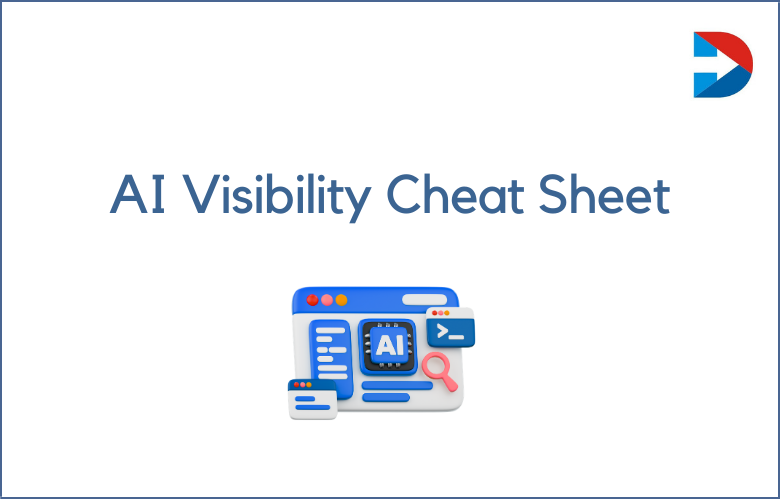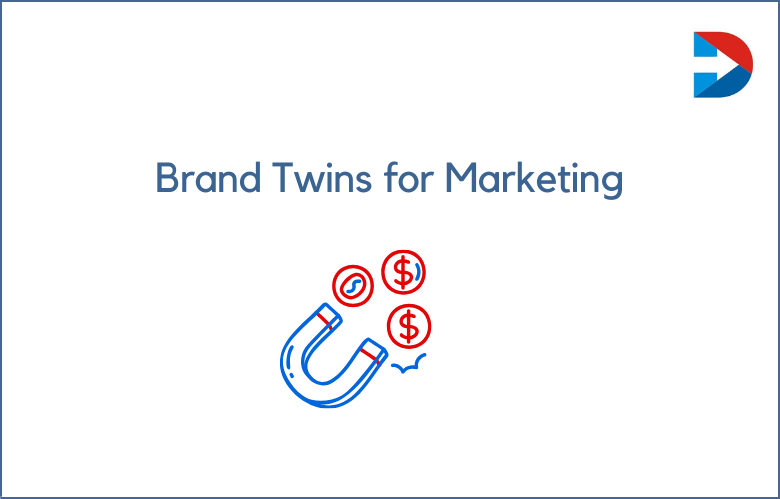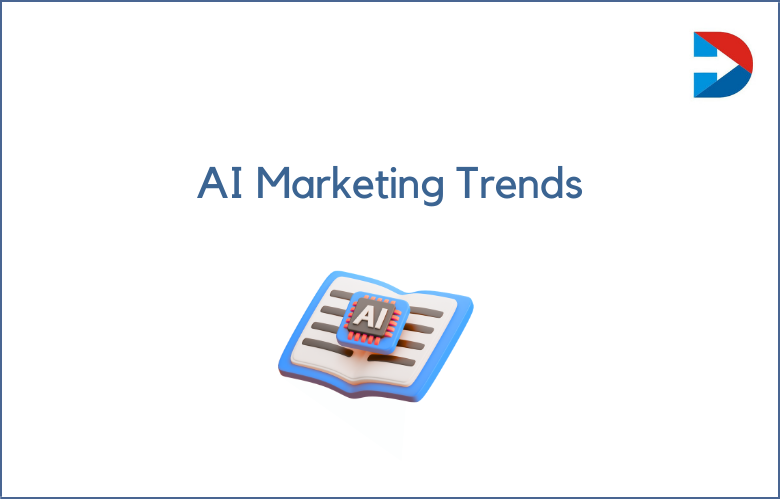
Artificial Intelligence (AI) is transforming the way we live and work. Advancements in AI and Machine Learning (ML) are revolutionizing the job market, and Generative AI is quickly becoming a game-changer in the marketing industry and shaping the future of marketing jobs with AI.
Marketers always look for innovative ways to create content that appeals to their audience. Generative AI allows them to create unique and personalized content on a massive scale.
As a result, the role of marketing professionals is changing, and some jobs are at risk of being automated. We’ll explore the impact of Generative AI on jobs and marketing professionals
Generative AI is a technology that uses algorithms to generate content. Computers can automatically create text, images, audio, and video without human intervention.
What is Generative AI?
Generative AI is a form of machine learning used in the predictive modeling of data. It’s similar to other forms of machine learning, but generative AI focuses on creating new data rather than analyzing existing data.
Generative AI is often used in generating new artwork, music, language, and even entire websites. By using generative AI tools, marketers and job professionals can develop new content that’s both engaging and personalized.
How Generative AI is Used in Marketing.
Generative AI is quickly becoming popular among marketing professionals, allowing them to create personalized campaigns efficiently. With the help of AI tools, you can now create unique ad campaigns that are tailored to a specific audience.
The goal is to increase customer engagement and create meaningful interactions that connect them to your brand. With generative AI, marketers can create unique content that keeps customers engaged and interested.
How Generative AI is Used in Jobs.
Generative AI is also becoming a preferred tool for job professionals. HR teams can use generative AI to write job descriptions, which takes less time and improves accuracy.
Personalized language is a proven technique to entice job seekers and attract suitable candidates. Using generative AI, job professionals can make the most of their time and enhance recruitment.
How Generative AI is Transforming the Job Market and Marketing Professionals.
Generative AI is an advanced technology that can create designs, images, and music through machine learning algorithms.
With its immense potential to optimize marketing strategies, streamline creative processes, and reduce costs, more and more businesses today are embracing Generative AI in Marketing.
However, as with all technological advancements, some experts argue that the growing use of Generative AI could create a downside for jobs and employment opportunities for Marketing Professionals.
Let us explore how the increasing implementation of Generative AI is transforming the job market and Marketing Professionals.
Generative AI And Workforce Transformation: Redefining Roles
The rise of generative AI and workforce transformation is leading to major shifts in how companies restructure roles and expectations across departments.
The Rise of Generative AI: How It’s Changing the Game for Jobs and Marketing Professionals.
In recent years, we’ve seen a significant shift in marketing and job automation. As businesses recognize the benefits of technology, generative AI is quickly becoming a popular tool for professionals in both fields.
Generative AI is a subset of artificial intelligence that creates new content, making it a game-changing tool for marketing and advertising professionals.
But what exactly is generative AI, and how is it being used? Explores the exciting world of AI and its impact on jobs and marketing professionals.
The Impact of Generative AI on Jobs and Marketing Professionals.
Generative AI technology has been taking over the digital world, and it’s anyone’s guess how it will affect the future workforce.
While some are worried about AI replacing jobs, others see it as an opportunity for increased efficiency and productivity.
The AI impact on digital marketing roles is visible in campaign management, audience targeting, and personalized content delivery.
We will discuss generative AI’s direct and indirect impact on marketing professionals, causing a paradigm shift in the marketing world.
The Pros and Cons of Generative AI in the World of Jobs and Marketing Professionals.
Artificial Intelligence (AI) is rapidly changing how we work and communicate in the modern world. AI has significantly impacted various sectors, with generative AI being one of the most vital contributors.
The technology can analyze and learn from vast amounts of data, making it a valuable tool for marketing professionals. However, while generative AI is beneficial, it is not without its cons.
We’ll dive deep into the pros and cons of generative AI in jobs and marketing professionals.
Benefits of Generative AI on Jobs and Marketing Professionals.
Automation of Repetitive Tasks:
One of the primary benefits of using Generative AI in Marketing is the automation of repetitive tasks.
In traditional marketing, marketers often spend an enormous amount of time on repetitive tasks like creating product listings, designing email marketing templates, and copywriting.
By utilizing marketing automation and AI tools, marketers can automate these tasks and focus their strategic processes and brainstorming.
Tasks requiring high creativity levels, strategizing, and critical thinking fall under the human purview rather than being relegated to monotonous tasks that are easily automated.
Improved Personalization:
Generative AI is transforming marketing by improving the ability to personalize customer experiences. Companies can now analyze data from the customer’s previous buying habits, demographic data, and other relevant information to tailor content specifically relevant to each customer.
The marketing efforts are optimized by using the data to personalize each customer’s journey, and sales potential is increased. This personalization results in improved customer experience, which drives customer loyalty to the brand.
New Job Opportunities:
While some fear that Generative AI will reduce job opportunities, the increasing use of this technology could create new career paths for Marketing Professionals.
As Generative AI tools continue to develop, it creates new opportunities for marketers to understand, strategize, and create optimized marketing processes that reflect changing market sentiments.
This means the new professional roles comprise people who manage, maintain, and optimize Generative AI tools or interpret them in-house or as independent consultants or freelancers.
Minimal Human Error:
Marketing is a dynamic field. With multiple campaigns running at once, it’s possible for issues like typos, broken tags, and incorrect image placements to crop up.
Generative AI tools employing deep learning algorithms can optimize and eliminate these human errors before they can impact campaigns’ effectiveness. This allows for improved accuracy and better ROI from ad campaigns.
Potential Job Loss:
Though Generative AI presents innovative opportunities for marketers, some believe it to be a significant threat to employment.
The potential concern lies in the fact that as AI systems become more advanced, they could eventually learn to perform more complex tasks that are today done by human employees.
The market could eventually see a collapse of the middle layer in some industries, with jobs either done by specialized, skilled professionals managing and interpreting the AI or, at the other end of the spectrum, an increase in lower-skilled jobs.
A major concern revolves around how AI affects creative professionals, especially those in roles requiring original thought, visual design, or editorial judgment.
Conclusion:
The impact of Generative AI on jobs and the future of marketing jobs with AI is already being felt. Marketers must adapt their skill sets to include AI programming skills to remain relevant in their industry.
While such advancements create opportunities for producing content quickly and efficiently, jobs in content creation and other creative areas are also at risk.
Companies must also maintain ethical considerations when deploying AI-generated content and ensure it adheres to their brand standards. Thus, Generative AI presents challenges and opportunities and can change how we approach marketing and job roles.
Impact of Generative AI on Jobs and Marketing Professionals: FAQs
What Is Generative AI In Marketing?
Generative AI uses algorithms to create new content, such as text, images, or videos, enabling marketers to produce personalized, engaging material at scale.
How Does Generative AI Impact Marketing Jobs?
It automates repetitive tasks like copywriting and design, shifting roles toward strategy, oversight, and managing AI tools.
Why Is Generative AI A Game-Changer For Marketers?
It enables the rapid creation of high-quality, personalized content, reducing manual work and boosting campaign effectiveness.
What Tasks Can Generative AI Automate In Marketing?
Tasks like creating product listings, email templates, social media posts, and ad visuals can be automated, saving time.
How Does Generative AI Improve Content Quality?
It uses deep learning to eliminate errors like typos or broken tags, ensuring consistent, high-quality campaign outputs.
Can Generative AI Replace Marketing Professionals?
While it automates tasks, it’s unlikely to fully replace marketers, as human creativity and strategy remain essential.
What New Roles Are Emerging Due To Generative AI?
Roles like AI tool managers, prompt engineers, and AI content strategists are emerging to optimize AI outputs.
How Does Generative AI Enhance Personalization?
It tailors content to specific audiences using data patterns, increasing engagement and conversion rates.
What Are The Benefits Of Generative AI In Social Media?
It creates compelling posts, visuals, and responses, saving time and improving audience engagement.
How Does Generative AI Affect Marketing ROI?
Automating tasks and improving content quality reduces costs and increases campaign effectiveness, boosting ROI.
What Are The Risks Of Generative AI In Marketing?
Risks include perpetuating data biases, ethical concerns, and over-reliance on AI outputs without human oversight.
How Can Marketers Mitigate AI Bias In Campaigns?
Using diverse datasets and regular audits ensures AI-generated content avoids perpetuating biases or inaccuracies.
Why Is Human Oversight Crucial For Generative AI?
Human review ensures AI outputs align with brand values, are accurate, and meet ethical standards.
How Does Generative AI Support B2B Marketing?
It streamlines content creation for case studies, whitepapers, and personalized outreach, enhancing lead generation.
What Skills Do Marketers Need For Generative AI?
Skills in prompt engineering, AI tool management, and data analysis are increasingly vital for marketers.
How Does Generative AI Impact Job Satisfaction?
Automating mundane tasks allows marketers to focus on creative and strategic work, potentially increasing satisfaction.
Can Generative AI Create New Marketing Opportunities?
It opens roles in AI strategy, content optimization, and managing AI-driven campaigns.
How Does Generative AI Affect Campaign Speed?
It accelerates content creation and campaign deployment, enabling faster market responses.
What Industries Benefit Most From Generative AI?
Marketing, sales, software development, and customer service see significant value due to content and automation needs.
How Can Marketers Upskill For Generative AI?
Learning AI tools, prompt engineering, and data-driven marketing through courses or platforms like LinkedIn Learning is key.



